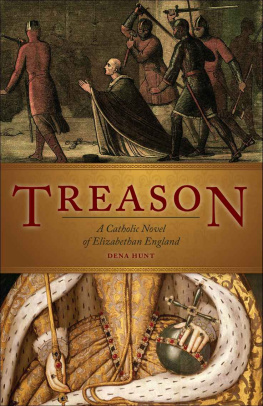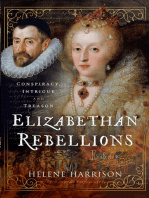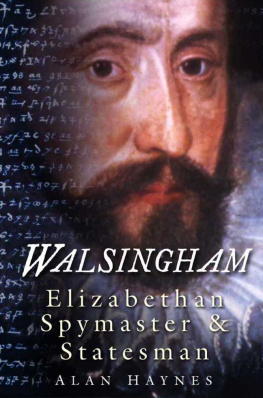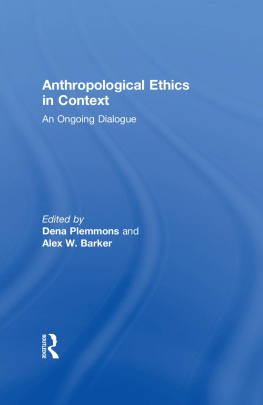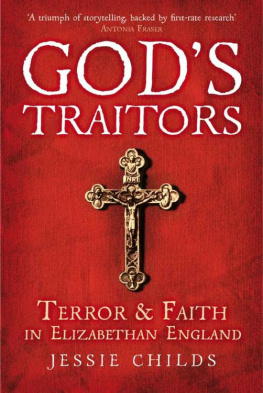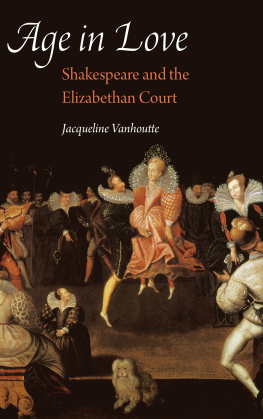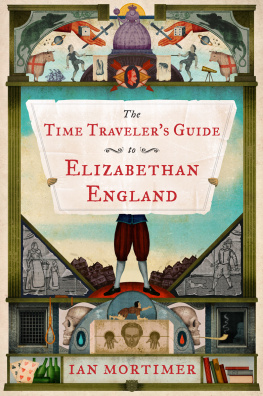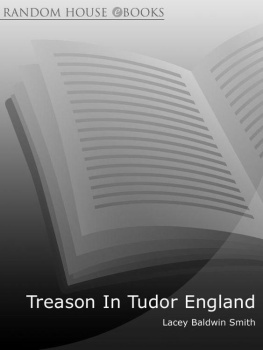Dena Hunt - Treason: A Catholic Novel of Elizabethan England
Here you can read online Dena Hunt - Treason: A Catholic Novel of Elizabethan England full text of the book (entire story) in english for free. Download pdf and epub, get meaning, cover and reviews about this ebook. year: 2013, publisher: Sophia Institute Press, genre: Science fiction. Description of the work, (preface) as well as reviews are available. Best literature library LitArk.com created for fans of good reading and offers a wide selection of genres:
Romance novel
Science fiction
Adventure
Detective
Science
History
Home and family
Prose
Art
Politics
Computer
Non-fiction
Religion
Business
Children
Humor
Choose a favorite category and find really read worthwhile books. Enjoy immersion in the world of imagination, feel the emotions of the characters or learn something new for yourself, make an fascinating discovery.
- Book:Treason: A Catholic Novel of Elizabethan England
- Author:
- Publisher:Sophia Institute Press
- Genre:
- Year:2013
- Rating:5 / 5
- Favourites:Add to favourites
- Your mark:
- 100
- 1
- 2
- 3
- 4
- 5
Treason: A Catholic Novel of Elizabethan England: summary, description and annotation
We offer to read an annotation, description, summary or preface (depends on what the author of the book "Treason: A Catholic Novel of Elizabethan England" wrote himself). If you haven't found the necessary information about the book — write in the comments, we will try to find it.
Dena Hunt: author's other books
Who wrote Treason: A Catholic Novel of Elizabethan England? Find out the surname, the name of the author of the book and a list of all author's works by series.
Treason: A Catholic Novel of Elizabethan England — read online for free the complete book (whole text) full work
Below is the text of the book, divided by pages. System saving the place of the last page read, allows you to conveniently read the book "Treason: A Catholic Novel of Elizabethan England" online for free, without having to search again every time where you left off. Put a bookmark, and you can go to the page where you finished reading at any time.
Font size:
Interval:
Bookmark:
Treason
A Catholic Novel
of Elizabethan England
by Dena Hunt
SOPHIA INSTITUTE PRESS
Manchester, New Hampshire
Copyright 2013 Dena Hunt
Printed in the United States of America
All rights reserved
Cover design by Carolyn McKinney
On the cover: Murder of Becket , by James E. Doyle (19th century),
private collection, Look and Learn / The Bridgeman Art Library;
and Queen Elizabeth I (c. 1600; oil on panel), National Portrait
Gallery, London, UK / The Bridgeman Art Library.
Sophia Institute Press
Box 5284, Manchester, NH 03108
1-800-888-9344
www.SophiaInstitute.com
Sophia Institute Press is a registered trademark of Sophia Institute
Library of Congress Cataloging-in-Publication Data
Hunt, Dena.
Treason : A Catholic novel of Elizabethan England / Dena Hunt.
pages cm
ISBN 978-1-933184-92-0 (pbk. : alk. paper)
eBook ISBN 978-1-622821-55-6 1. Catholics
England History 16th century Fiction.
2. Historical fiction. I. Title.
PS3608.U5728T74 2013
813'.6 dc23
2013003187
To Blessed Nicholas Postgate,
a Catholic priest
who faithfully served his parish
in the wilds of the Yorkshire moors,
always traveling by foot,
until he was arrested, hanged,
drawn, and quartered at York,
at the age of eighty.
I NTRODUCTION
by Joseph Pearce
Good literature takes us out of ourselves and into other worlds. It liberates us from the little provincial cosmos that we have made for ourselves in the limiting confines of our own heads. It takes us on a voyage of discovery of the infinitely wider cosmos that is found beyond ourselves. It shows us a breathtaking and soul-shaking reality that challenges our insular pride and prejudice. It introduces us to the Other, to the Real.
In the realm of so-called fantasy literature (fantasy being a poor label for such a great thing), we pass beyond the wardrobe of the self-enclosed mind into the wideness and wonders of an expanding imagination. Yet the wardrobe contains not merely a door of enlarged perception through which we pass but a mirror in which we can see ourselves more clearly. It is in this sense that Tolkien insisted that one of the great values of fairy stories was their ability to hold up a mirror to man. These stories show us ourselves.
What is true of good literature is also true of history. The past is a different country, the visiting of which enables us to see all the more clearly the present day, which is our own small and short-lived country. The past makes sense of the present. It frees us from the fetters of fashion and liberates us from the little prejudiced and provincial cosmos that the zeitgeist presents to us. It shows us the breathtaking and soul-shaking lessons to be learned from the collective experience of humanity over millennia of trial and error. It allows us to learn the lessons without making the mistakes. It is in this sense that the sage reminds us that those who do not learn the lessons of history are doomed to repeat them in the present and are destined to live with their disastrous consequences in the future. The past is a perilous realm in the sense that we ignore it at our peril.
The novel you are about to read brings together good literature and good history, the two becoming one flesh in a nuptial embrace, the fruit of which is a journey to another place that is frighteningly close to home. It shows us ourselves in the lives of our ancestors and reminds us that our forebears are as close to us in their humanity as they are distant from us in time. They are our neighbors whom we are called to love. This novel takes us to a country, Elizabethan England, in which the forces of secularism have outlawed the Catholic Church. It leads us through a political landscape in which the rights of the secular state, as defined by the state itself, trample underfoot the rights of people to follow their conscience and practice their religion. It introduces us to a legal system in which Catholic priests are declared to be traitors to their country and enemies of the people. It shows us a culture of Machiavellian realpolitik in which the practice of religion is declared to be a political act and in which the state has established its own church as the only religion to be tolerated.
At its best, Miss Hunts modest novel resonates with the epic power of Kristen Lavransdatter in its unflinching depiction of sanctity in the midst of human folly. Admirers of the great priest-novelist Robert Hugh Benson will find parallels with Come Rack! Come Rope! Less obviously but perhaps more palpably, parallels might also be drawn with Bensons apocalyptic and dystopian tour de force, Lord of the World . The latter parallel is rooted in the unsettling paradox that history seems to be repeating itself and is now uncannily foreshadowing the future. As such, Treason has a Janus-like quality; it looks forward even as it is looking back. It sees the past as a portent of the future, a warning to be heeded. It sees the past as a prophet. Though Treason is formally a work of historical fiction, depicting a past that has passed away, it is also, trans-formally, a work of cautionary potency as frightening as Huxleys Brave New World , Orwells 1984 , or the aforementioned Lord of the World . It is a work about the past that should be read with one eye on the present and the other on the future. As a manifestation of unchanging truth, the reality that it depicts was and is and is to come.
P REFACE
In the summer of 2006, I had the good fortune to join a Catholic pilgrimage in England for a few days. The pilgrims were led by Father Joseph Fessio, S.J., and Joseph Pearce, renowned biographer and editor of St. Austin Review . It was during those few days that I became fully aware of the revisionist history that has been the foundation of my American Protestant heritage.
Among the sites we visited was an ancient tiny church in a sheep pasture outside Keswick in the Lake District the Church of St. Bega, dating from around A.D. 950. Like all churches in England in the sixteenth century, St. Begas had its Reformation experience: its altar was desecrated, its Bible and prayer books were removed; it was stripped of its small, primitive crucifix, found buried in the sheep pasture only recently; and the murals on its walls, painted by some unknown loving hands, were whitewashed. And like all the other English churches, little St. Begas became the property of the state.
Father Fessio asked permission to celebrate Holy Mass there, and as each of the small number of pilgrims went forward to receive Holy Communion, I thought about the fact that this was the first time the Blessed Sacrament had been under that roof in nearly five hundred years. Looking back now, I realize that the seed of this story was planted then. I had taught British literature for thirty years, and I was familiar with the rough outline of Englands historical attempt, sustained over centuries, to eradicate the Catholic Church. But history tells us only major events and the major persons involved in those events. The little Church of St. Bega made me wonder about the many thousands of unknown persons who were profoundly affected not just by those major events, but by the slow progress of sustained persecution over time. What was it like to live each day in the hope for an end to the patriotic religious hatred that forced every citizen to choose between loyalty to country and fidelity to faith? Generations passed on to new generations a hope that was never fulfilled, so that hatred of the Church and all those who remained faithful to her became permanently and inextricably woven into the fabric of Englands national character.
Next pageFont size:
Interval:
Bookmark:
Similar books «Treason: A Catholic Novel of Elizabethan England»
Look at similar books to Treason: A Catholic Novel of Elizabethan England. We have selected literature similar in name and meaning in the hope of providing readers with more options to find new, interesting, not yet read works.
Discussion, reviews of the book Treason: A Catholic Novel of Elizabethan England and just readers' own opinions. Leave your comments, write what you think about the work, its meaning or the main characters. Specify what exactly you liked and what you didn't like, and why you think so.

